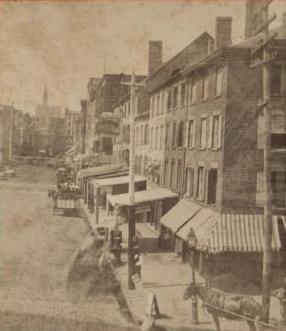A slow eruption of despair…
Review:
The Iceman Cometh
A play by Eugene O’Neill (1888-1953)
Written in 1939, first performance in 1946
Stamina is one thing you need to load up on so you can read or watch The Iceman Cometh.
Pathos, not so much. Your usual willingness to embrace pathos will be fully engaged, because Eugene O’Neill boiled this play in pathos.
The short version:
A bunch of broke-down drunks in a 1912 Greenwich Village bar sprawl in the old chairs, mutually reinforcing their relentless pursuit of a maundering besotted state that creates the milieu for exercising their pipe dreams.
When their hero, the traveling salesman they call Hickey, tries to talk them into exorcizing their pipe dreams, they oh so tentatively agree…but they proceed to fail in oh so predictable ways.
In the final scene, Larry—forlorn, a lapsed anarchist—mutters “Life is too much for me, I’ll be a weak fool, looking with pity at the two sides of everything ‘til the day I die.”
That’s really The Iceman Cometh, in simplest language. It distinctly examines only one side of everything. The play makes no pretense about having redeeming qualities. It’s a slow eruption of despair. It’s a slow walk through the dark side. There is no exit except death’s door. I was glad, at the end, when I could stop watching it.
Early in his career, Marlon Brando turned down an offer to play a key role in Iceman, saying that O’Neill’s work was “ineptly written and poorly constructed.” To each his own.
I think The Iceman Cometh is a masterpiece of truth-telling. He tells some truths about life that are all too real for some people, and all too horrid contingencies for the rest.
I imagine that watching it is a lot less terrifying than living it.
* * * * * *
Copyright © Richard Carl Subber 2017 All rights reserved.
–
My first name was rain: A dreamery of poems with 52 free verse and haiku poems,
and the rest of my poetry books are for sale on Amazon (paperback and Kindle)
and free in Kindle Unlimited, search Amazon for “Richard Carl Subber”
Book review:
Shakespeare: The World as Stage
The Bard sure was the lucky one…
© 2018 – 2025, Richard Subber. All rights reserved.

0 Comments